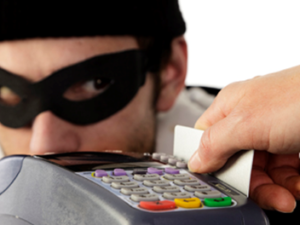2017 Was the Worst year for Data Breaches EVER!
It seems like 2017 broke records for all the wrong reasons…one of them being the worst year for data breaches in history.
 According to reports, hacking was the most common way to collect this data, but almost 70% of exposures occurred due to accidental leaks or human error. This came down to more than 5 billion records. There were several well-known public leaks, too, including the Amazon Web Services misconfiguration. More than half of the businesses using this service were affected, including companies like Verizon, Accenture, and Booz Allen Hamilton. The scariest part of this, however, is the fact that the number of breaches and the number of exposed records were both more than 24% higher than in 2016.
According to reports, hacking was the most common way to collect this data, but almost 70% of exposures occurred due to accidental leaks or human error. This came down to more than 5 billion records. There were several well-known public leaks, too, including the Amazon Web Services misconfiguration. More than half of the businesses using this service were affected, including companies like Verizon, Accenture, and Booz Allen Hamilton. The scariest part of this, however, is the fact that the number of breaches and the number of exposed records were both more than 24% higher than in 2016.
Big Breaches of Big Data
Another interesting thing to note is that eight of the big breaches that occurred in 2017 were in the Top 20 list of the largest breaches of all time. The top five biggest breaches in 2017 exposed almost 6 billion records.
Part of the reason for the big numbers is because huge amounts of data were exposed from huge companies, like Equifax. There was also a huge breach at Sabre, a travel systems provider, and the full extent of the breach isn’t even known at this point. All we do know is that it was big.
When looking at all of the known 2017 data breaches, almost 40% of the breaches involved businesses. About 8% involved medical companies, 7.2% involved government entities, and just over 5% were educational entities. In the US, there were more than 2,300 breaches. The UK had only 184, while Canada had only 116. However, until now, companies in Europe were not forced to report breaches, so things could change now that reporting is mandatory.
What were the biggest breaches of all time? Here they are, in order:
- Yahoo (US company) – 3 billion records
- DU Caller Group (Chinese company) – 2 billion records
- River City Media (US company) – 1.3 billion records
- NetEase (Chinese company) – 1.2 billion records
- Undisclosed Dutch company – 711 million records
Though none of this is great news, there is a silver lining here: none of the breaches of 2017 were more severe than any other breach in history, and overall, the occurrence of breaches dropped in the fourth quarter.
Because of so many breaches occurring due to human error, it’s very important that businesses of all sizes enact security awareness training, including helping staff understand what makes a business a target and what type of info the hackers want.
Robert Siciliano personal security and identity theft expert and speaker is the author of Identity Theft Privacy: Security Protection and Fraud Prevention: Your Guide to Protecting Yourself from Identity Theft and Computer Fraud. See him knock’em dead in this Security Awareness Training video.

 As
As 























